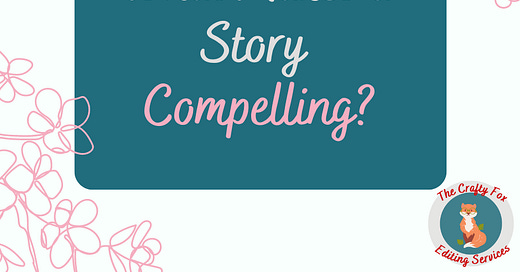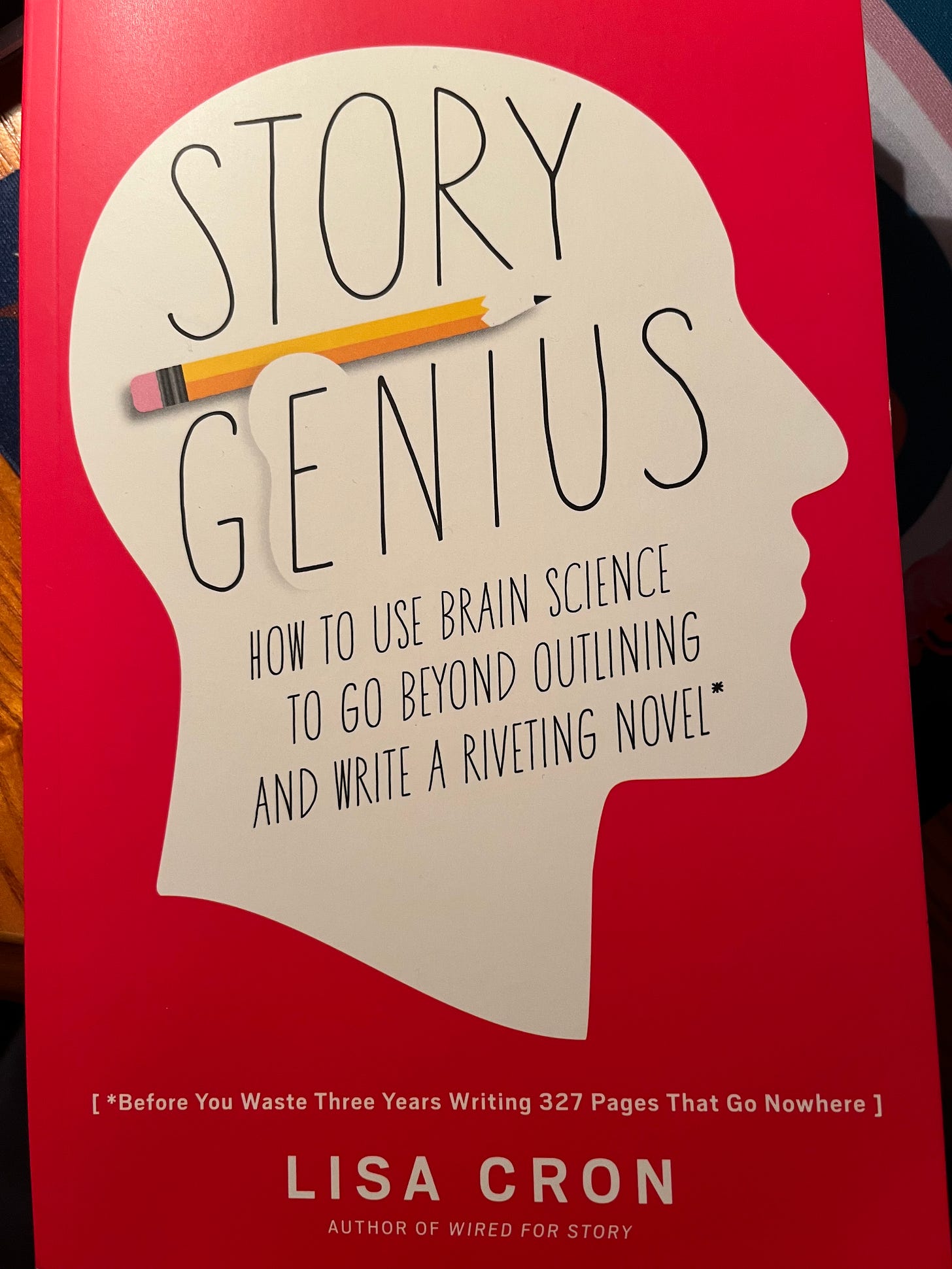Hey Story Crafters,
You know that feeling of affirmation you get when you come across information that’s widely published and aligns with one of your beliefs? It’s not a feeling I experience often, so it usually sticks out to me when it does. In this case, it’s about the importance of character in storytelling.
I’m currently reading Lisa Cron’s Story Genius: How to Use Brain Science to Go Beyond Outlining and Write a Riveting Novel*. I’m about halfway through, and I’m amazed how a lot of the craft mechanics and thought processes she explains that go into writing a novel, line up with what I’ve been figuring out through a lot of trial and error. The book was published in 2018, and I honestly can’t believe I haven’t picked up a copy of it before now.
One point she makes right at the beginning that I appreciate in particular is explaining the difference between plot and story. This key difference is one she’s noticed a lot writers tend to overlook or confuse, and it can be the make-or-break point of an engaging novel. Basically:
Plot = The external events that happen to the protagonist.
Story = The internal transformation the protagonist undergoes while being affected by the events set forth by the plot.
Plot is the external events that happen to the protagonist, the surface level of the protagonist’s character development. Story is the protagonist’s internal transformation, the mental and/or emotional shift the protagonist undergoes while being affected by the events set by the plot.
The protagonist’s internal transformation is what draws readers in, and makes them invested in the protagonist. You can have an interesting protagonist, put them through a series of exciting, dramatic events, and write the most beautiful prose, but still end up with a lackluster novel, if this internal transformation—how and, more importantly, why the protagonist reacts to and is changed by the events of the plot—isn’t addressed.
This is the reason why we all have favorite books, movies, shows, etc. that we frequently revisit. We feel connected to and resonate with the protagonist of that favorite story because of their internal transformation. As an example, let's go back to a favorite of mine: Shrek (the movie version, not the book).
Shrek is presented as an unlikable character—to other characters in the world of his story, that is. The viewer, on the other hand, might relate to one or several aspects of Shrek’s life, like appreciating solitude and enjoying a quiet life. And maybe even relating to that “outsider” or “outcast” part of his character.
Plot: The plot starts when fairy tale creatures invade Shrek’s home, ruining his normal life. He then goes on a quest to reclaim his swamp (aka privacy), reluctantly allowing Donkey to tag along as a guide. Events (or obstacles) he undertakes include confronting Farquaad, having to fight off knights to confront Farquaad, and being issued a side quest (he has to rescue Fiona and escort her to Farquaad) in exchange for getting his swamp back. And, of course, this side quest doesn’t go the way he expects it to.
Story: Shrek’s story, his internal transformation, is that he starts off as a loner who was rejected by others in the past for being different, and believes it’s better to cut himself off from everyone else before they have a chance to hurt him. As he goes on his quest (the plot), he learns how to be vulnerable and make meaningful, emotional connections with others.
What’s your favorite story, and how would you identify plot versus story? Feel free to share in the comments!
Protagonists whose internal transformations resonate with readers are the ones whose stories are remembered best, and are revisited the most. So as you come up with fascinating, harrowing adventures for your protagonist, make sure those events have meaning to the protagonist. If the protagonist isn't affected by the events, isn’t prompted to change, then the reader will wonder why the protagonist is assigned the role of “protagonist” in the first place.
If you haven’t read Story Genius yet, I recommend doing so if you’re looking for a new approach to novel writing, with a focus on character. As I mentioned earlier, I’m only halfway through the book, but the exercises I’ve read so far for setting up a story and creating the protagonist look promising. I’ll definitely be trying them out myself!
Best,
Leah
Do you have a finished project that’s ready for editing? Learn more about my services, or get in touch to start a conversation!





